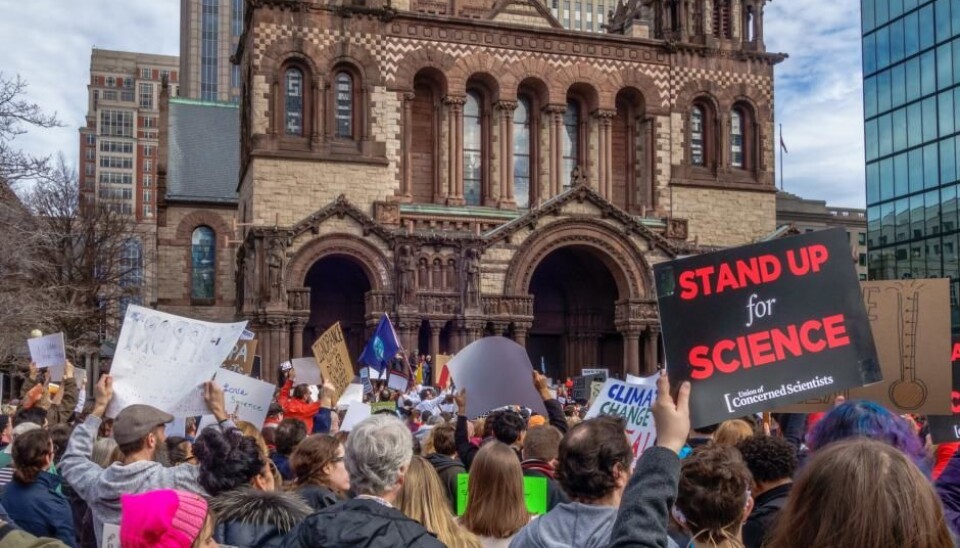
Scientists set to protest all around the Nordics
“If Niels Bohr was alive, he’d be there,” says one Danish scientist who is taking part in the March for Science, this Saturday 22nd of April. See our interactive map to find an event near you.
Scientists, and supporters of science, should no longer passively observe developments where politicians increasingly take decisions that harm the future of the Earth and people. It is time to speak out, say scientists the world over.
This weekend, people all over the world will march in support of science and its role in society. And the Nordics are no exception, with events taking place in Denmark, Norway, Sweden, Finland, Iceland, and Greenland.
“I see an increasing tendency that politicians ignore scientific facts and instead base their decisions on ideology and feelings,” says one of the organisers behind events in Denmark, Ian Bearden, a professor at the Niels Bohr Institute, Department of Experimental Physics.
“In Denmark, politicians have removed support for windmills and reduced taxes on cars, even though they know that the Earth’s future is under threat if we just continue to emit CO2. And there’s many other examples of politicians making decisions that go against the scientific evidence,” he says.
Find a march near you in our interactive map above. See the March for Science website for a full list of events outside the Nordics. (Interactive map: ScienceNordic)
Donald Trump unleashed protest
The idea to march for science began in the USA, in the days following the election of Donald Trump. American scientists were outraged by the new President’s attitudes towards climate change and climate science.
The protest became international and sister marches were soon announced all over the world.
According to the organisers in Denmark, the march is a signal to politicians and those in power to start focussing their policies on scientific fact, even if that is not always the most popular option.
“Anti-science agendas and policies harm everyone, without exception. Science should neither be guided by special interests nor be rejected based on personal convictions. Science is humanity’s best tool for seeking answers and solutions,” say the organisers of the March For Science, Denmark, on their website.
Find your nearest march in the Nordics, in the interactive map above.
Scientists are obligated to speak up
The protest is not directed towards individual politicians or parties says Bearden.
“It’s a call to everyone, across all political spheres. If we want to make a better world for our children, we need to take into account the knowledge that we have achieved, and act on it,” he says.
Bearden’s own reasons for marching are also local. He mentions an increasing politicisation of research in Denmark as one reason. For example, in 2016 the Danish government prevented scientists at Aarhus University from releasing a report on the environmental consequences of proposed new regulations of nitrogen emissions, until they had ensured that they had enough votes in parliament to pass the regulations.
“We scientists have been inclined to not involve ourselves, but I think we have the responsibility to speak up and say “Listen here, this is important.”,” he says.
Bearden is hoping that people who believe that science makes the world a better place, will turn up and march.
“If Niels Bohr was alive, I’m sure that he’d be there,” he says.
---------------
Read more in the Danish version of this article on Videnskab.dk
Translated by: Catherine Jex





